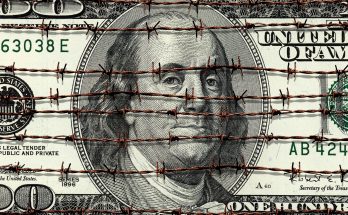It's pretty easy to bump into someone in the financial profession who is really excited about entering the chartered financial analyst (CFA) program. Sometimes they know what they are getting into, sometimes they don't. They may have no idea how much time it takes or exactly how having the charter may help or hurt them.
Make no mistake—earning the CFA designation is a grueling process, so before you commit, consider what it takes to earn it, how it will benefit you and your career, the negatives of going through the process, and whether the pros outweigh the cons.
Key Takeaways
Earning the CFA is a prolonged, pricey, and altogether challenging process that may not be right for every financial professional.To become a CFA, a candidate must pass the three-level exam, build up work experience in a related field, provide letters of reference, and apply to join the CFA Institute.The hardest part of the process for many people is the educational component, with each level of the exam generally warranting 300 hours of prep time.Despite the considerable financial commitment and time investment that is required to prepare to take the exam, roughly 50% of all applicants fail.For some who achieve the CFA, the rewards include a higher salary, a better reputation, and an advancement in career; for others, the impact of the CFA on their salary, reputation, and career is more muted.
Chartered Financial Analyst Requirements
The CFA Institute requires four steps to become a CFA. They include:
Pass all three levels of the CFA exam in succession.Acquire qualified work experience before, during, or after the program.Submit two to three professional references.Apply to join the CFA Institute, which includes completing a professional conduct statement.
For many people, the most difficult part of earning a charter is fulfilling the educational requirements. The CFA program consists of three exams encompassing a "candidate body of knowledge" (CBOK) that the CFA Institute believes is necessary for those in the investment profession.
1:47
What Is a CFA?
The CFA Test Levels and Time
The test for level I is given in February, May, August, and November, while the exams for levels II and III are given three times and twice a year, respectively, on alternating months. Candidates must pass each level before moving on to the next.
Pass rates tend to hover around half. In February 2022, pass rates were 36% for the level I exam. Pass rates were also at 44% for level II. Of those who took the level III exam in November 2021, 43% passed.
The investment of time is crucial. The CFA Institute estimates the average candidate should expect to spend at least 300 hours preparing for each level. In fact, the average candidate spends an average of 323 hours preparing for each exam (303 hours for level I; 328 hours for level II; 344 hours for level III).
Before entering the chartered financial analyst (CFA) program, be sure you've considered the costs, the time commitment, and whether it's likely to help you to get to where you want to go in your career.
CFA Professional Requirements
Once you've considered the time required to pass the levels, you must next look at the professional requirements needed. Before a candidate can become a CFA, they must have accrued 36 monthsof acceptable work experience. Fortunately, the CFA Institute's definition of acceptable experience is fairly broad, encompassing such areas as trading, economics, and corporate finance.
For work experience to qualify, time must be directly involved in the investment decision-making process or producing a product that impacts that process. However, there are a number of candidates who enter the program and are not in fields where anything they do can be construed to be within the realm of acceptable experience. Some of these candidates may find that while they are able to pass the educational requirements, they will not receive the designation because they do not have the required professional experience.
The CFA Institute
Finally, before candidates can receive their charters, they must join the CFA Institute. If you need help, the CFA Institute's website explains the process in detail.
50%
The so-called "pass rate" of individuals who take the three-level CFA exam.
The Advantages of CFA Certification
To help you decide whether to pursue the charter, let's take a look at how it might be beneficial to you and your career.
How the Charter Could Benefit You
First, there is an educational benefit; you will learn a great deal and add a great credential to your CV. Then, there is a boost to your reputation. People in the business know the time and dedication it takes to earn the charter. When they see you have earned it, they will likely believe you have the ability, dedication, ethical grounding, andanalytical skills necessary to do the job in question.
There also may be financial benefits. You may see your salary increase after you've become a CFA or you may surpass other applicants who don't have this designation when competing for a new job. The operative word here is "may." Hard work, skill, luck, dedication, political savvy, and character have just as much to do with one's success in the investment profession as education, so don't view the charter as your golden ticket to financial paradise.
How the Charter Could Benefit Your Career
There are a number of financial fieldsin which having the charter is a substantial plus. The obvious one is investment management. As the investment industry continues to become more competitiveand morecommoditized, it will become almost imperative for any credible investment manager to earn the charter.
Outside of investment management, there are a number of other professions in which charterholders will benefit considerably:
Buy-side traderor other buy-side professional positions
Sell-side analyst, associate,or other sell-side professional positions
Business school professor
Economist
Financial advisor or financial planner
Beyond this list, there are a number of professions in which having the CFA charter helps, but where it is not a career roadblock if the financial professional does not have it.
The Disadvantages of CFA Certification
The CFA charter is not a guaranteed path to riches and glory. Before taking the plunge, carefully consider several drawbacks to earning one.
The Time Needed to Complete It
Becoming a CFA is a huge investment in time, between studying for and taking the exams and logging the minimum 4,000 hours of experience required over 36 months. You will sacrifice time with family and friends and the pursuit of hobbies you enjoy. And after committing all that time, there is no guarantee that you will earn the charter.
The Cost of Enrollment and Registration
While this factor may not be a major consideration, it is worth pondering. A level I candidate will pay a one-time program enrollment fee plus an exam registration fee. Level II and III candidates will pay a registration fee as well. There is also the cost of the books and study programs you'll have to buy. Altogether, you should expect to spend several thousand dollars each timeyou attempt the exams.
The CFA Won't Fix Your Career
The CFA is not a cure-all remedy for an ailing career. If you're enrolling in the program to jump-start a stalling career, you may want to look at other reasons your career is not moving forward first. Perhaps before investing inordinate amounts of time and a substantial amount of money into building your pedigree, you might choose to improve your soft skills, such as work ethic and political suaveness.
Pros
Increases knowledge
Boosts reputation
May increase salary
May improve career
Cons
Huge time crunch
May not earn the charter
Expensive for many
May not help career
What Is a CFA Salary?
According to the CFA Institute, the median total compensation for charterholder portfolio managers is $177,000 and the median base salary is $126,000. The difference between the two numbers is a result of the impact of cash bonuses and long-term incentives.
How Do I Become CFA Certified?
To become certified, you must pass the three-level CFA exam; build up work experience before, during, or after the program; submit several references; and apply to join the CFA Institute.
Is the CFA Exam Difficult to Pass?
By most accounts, the three-level CFA exam is challenging to pass. Each level of the exam typically warrants at least 300 hours of preparation and the pass rate is roughly 50% or lower.
Is a CFA Better Than an MBA?
Both the CFA and the MBA are valuable to financial professionals looking to develop their expertise, bolster their reputation, and advance their careers. Possessing both can give an individual a leg up as well. Financial professionals who work as money managers and registered investment advisors are especially keen to get a CFA.
The Bottom Line
A variation of the good old-fashioned cost-benefit analysis may be the best way to decide whether or not to undertake the program. On paper, plot out the costs versus the benefits of becoming a CFA.Your decision may changeas your career changes. A lost promotion in five years may make earning the designation more worthwhile.
This article is from https://www.investopedia.com/, if there is any copyright issue, please contact the webmaster to delete it.









